第158章
Friday, February 22, 1788.
HAMILTON
To the People of the State of New York:
THE natural order of the subject leads us to consider, in this place, that provision of the Constitution which authorizes the national legislature to regulate, in the last resort, the election of its own members. It is in these words: "The TIMES, PLACES, and MANNER of holding elections for senators and representatives shall be prescribed in each State by the legislature thereof; but the Congress may, at any time, by law, make or alter SUCH REGULATIONS, except as to the PLACES of choosing senators."[1] This provision has not only been declaimed against by those who condemn the Constitution in the gross, but it has been censured by those who have objected with less latitude and greater moderation; and, in one instance it has been thought exceptionable by a gentleman who has declared himself the advocate of every other part of the system.
I am greatly mistaken, notwithstanding, if there be any article in the whole plan more completely defensible than this. Its propriety rests upon the evidence of this plain proposition, that EVERY GOVERNMENT OUGHT TO CONTAIN IN ITSELF THE MEANS OF ITS OWN PRESERVATION. Every just reasoner will, at first sight, approve an adherence to this rule, in the work of the convention; and will disapprove every deviation from it which may not appear to have been dictated by the necessity of incorporating into the work some particular ingredient, with which a rigid conformity to the rule was incompatible. Even in this case, though he may acquiesce in the necessity, yet he will not cease to regard and to regret a departure from so fundamental a principle, as a portion of imperfection in the system which may prove the seed of future weakness, and perhaps anarchy.
It will not be alleged, that an election law could have been framed and inserted in the Constitution, which would have been always applicable to every probable change in the situation of the country; and it will therefore not be denied, that a discretionary power over elections ought to exist somewhere. It will, I presume, be as readily conceded, that there were only three ways in which this power could have been reasonably modified and disposed: that it must either have been lodged wholly in the national legislature, or wholly in the State legislatures, or primarily in the latter and ultimately in the former. The last mode has, with reason, been preferred by the convention. They have submitted the regulation of elections for the federal government, in the first instance, to the local administrations; which, in ordinary cases, and when no improper views prevail, may be both more convenient and more satisfactory; but they have reserved to the national authority a right to interpose, whenever extraordinary circumstances might render that interposition necessary to its safety.
Nothing can be more evident, than that an exclusive power of regulating elections for the national government, in the hands of the State legislatures, would leave the existence of the Union entirely at their mercy. They could at any moment annihilate it, by neglecting to provide for the choice of persons to administer its affairs. It is to little purpose to say, that a neglect or omission of this kind would not be likely to take place. The constitutional possibility of the thing, without an equivalent for the risk, is an unanswerable objection. Nor has any satisfactory reason been yet assigned for incurring that risk.
The extravagant surmises of a distempered jealousy can never be dignified with that character. If we are in a humor to presume abuses of power, it is as fair to presume them on the part of the State governments as on the part of the general government. And as it is more consonant to the rules of a just theory, to trust the Union with the care of its own existence, than to transfer that care to any other hands, if abuses of power are to be hazarded on the one side or on the other, it is more rational to hazard them where the power would naturally be placed, than where it would unnaturally be placed.
Suppose an article had been introduced into the Constitution, empowering the United States to regulate the elections for the particular States, would any man have hesitated to condemn it, both as an unwarrantable transposition of power, and as a premeditated engine for the destruction of the State governments? The violation of principle, in this case, would have required no comment; and, to an unbiased observer, it will not be less apparent in the project of subjecting the existence of the national government, in a similar respect, to the pleasure of the State governments. An impartial view of the matter cannot fail to result in a conviction, that each, as far as possible, ought to depend on itself for its own preservation.
As an objection to this position, it may be remarked that the constitution of the national Senate would involve, in its full extent, the danger which it is suggested might flow from an exclusive power in the State legislatures to regulate the federal elections. It may be alleged, that by declining the appointment of Senators, they might at any time give a fatal blow to the Union; and from this it may be inferred, that as its existence would be thus rendered dependent upon them in so essential a point, there can be no objection to intrusting them with it in the particular case under consideration. The interest of each State, it may be added, to maintain its representation in the national councils, would be a complete security against an abuse of the trust.